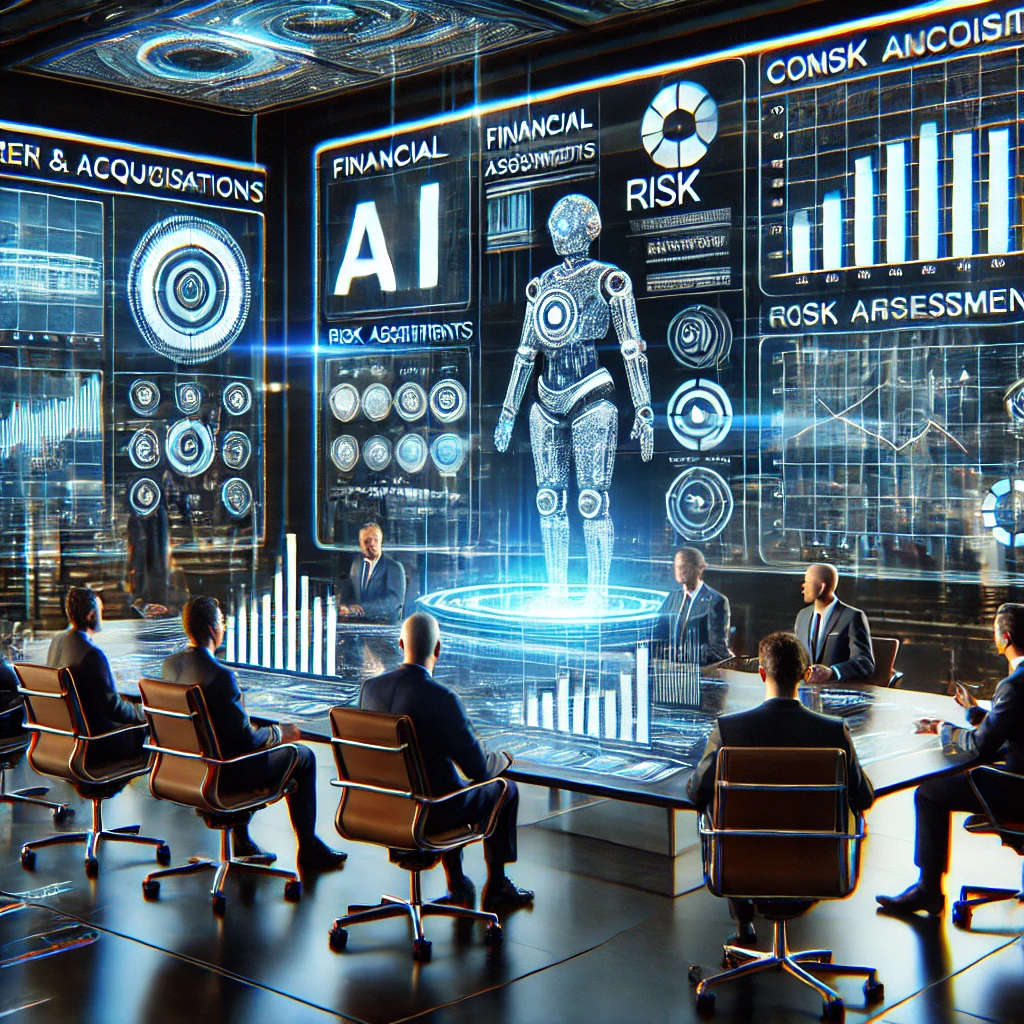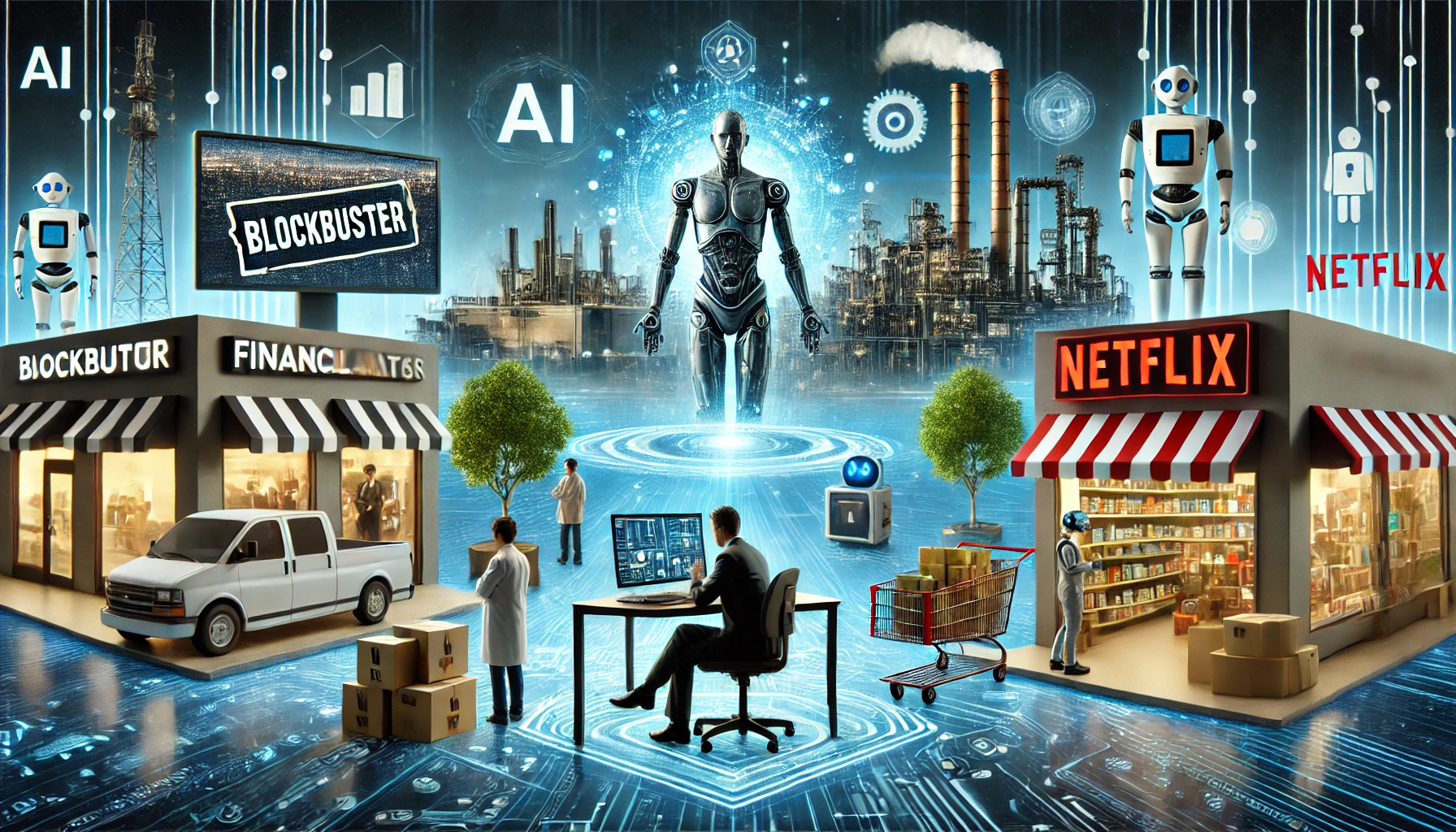How AI is Transforming the M&A Landscape
Introduction
Mergers and acquisitions (M&A) are among the most complex business transactions, requiring meticulous due diligence, financial analysis, and seamless integration post-merger. Traditionally, these processes have been riddled with inefficiencies, but artificial intelligence (AI) is now reshaping the M&A landscape. From identifying acquisition targets to optimizing post-merger integration, AI is revolutionizing the way businesses approach M&A, making transactions faster, more accurate, and more successful.
AI’s Role in Pre-Merger Activities
Before a merger or acquisition takes place, companies must conduct extensive due diligence and analysis to assess risks and opportunities. AI-powered tools are accelerating and enhancing these processes in several key ways:
1. Target Identification and Valuation
AI-driven algorithms analyze vast amounts of market data to identify potential acquisition targets that align with a company’s strategic goals. Machine learning models assess financial performance, market trends, and synergy potential, helping businesses make informed decisions faster.
2. Automated Due Diligence
Due diligence is a critical yet time-consuming process. AI-powered natural language processing (NLP) tools can sift through massive volumes of legal documents, financial statements, and compliance records to flag potential risks and inconsistencies. This automation significantly reduces human error and accelerates deal closure.
3. Financial and Risk Analysis
Predictive analytics tools can assess the financial health of target companies, forecast future performance, and detect anomalies that may indicate hidden risks. AI can also model different economic scenarios to evaluate how external factors might impact the success of an M&A deal.
How AI Simplifies Post-Merger Integration
Once a deal is completed, integrating two companies efficiently is one of the biggest challenges. AI-driven solutions are playing a crucial role in streamlining this process:
1. Workforce Integration and Cultural Alignment
AI-powered sentiment analysis tools can assess employee feedback from internal communications and social media to gauge company culture and morale. This helps leadership proactively address potential cultural clashes and design strategies to enhance employee retention and engagement post-merger.
2. Process Automation and Optimization
AI-driven automation tools can standardize workflows across merged organizations, reducing redundancies and improving operational efficiency. AI-powered chatbots and virtual assistants also help employees adapt to new systems, providing support for HR, IT, and administrative processes.
3. Data Harmonization and IT Systems Integration
Combining two companies’ IT infrastructures is often a major hurdle in post-merger integration. AI helps by automatically mapping, cleaning, and consolidating data across different platforms. Machine learning models can detect inconsistencies and propose solutions for seamless data migration.
4. Customer Retention and Market Insights
AI-driven analytics can identify customer segments most at risk of churn post-merger, allowing companies to take proactive measures. Additionally, AI-powered sentiment analysis can track how customers perceive the merger, providing insights that shape strategic communication and branding efforts.
Other AI Use Cases in M&A
Beyond due diligence and post-merger integration, AI is also enhancing the overall M&A process in various ways:
1. Regulatory Compliance and Contract Review
AI tools streamline regulatory compliance by automating contract analysis, ensuring that all agreements meet industry standards and legal requirements. NLP-powered platforms can flag potential compliance risks, reducing legal liabilities.
2. Negotiation and Deal Structuring
AI-driven predictive analytics can simulate negotiation scenarios, helping dealmakers assess various contract terms and financial structures. AI can also generate optimized deal strategies based on past M&A transactions and industry benchmarks.
3. Competitor and Market Analysis
AI continuously monitors competitors, industry trends, and geopolitical risks, providing real-time insights that help companies adapt their M&A strategies. These insights ensure businesses remain competitive and identify emerging opportunities.
Conclusion
AI is revolutionizing the M&A process, making it more efficient, data-driven, and strategic. From automating due diligence to enhancing post-merger integration, AI-powered solutions are reducing risk, accelerating timelines, and increasing the likelihood of successful deals. As AI technology continues to evolve, companies that leverage these innovations will gain a significant competitive edge in the fast-paced world of mergers and acquisitions.



 Fraud Detection & Prevention: AI-driven systems analyze transaction patterns and detect anomalies in real-time, preventing fraudulent activities before they occur.
Fraud Detection & Prevention: AI-driven systems analyze transaction patterns and detect anomalies in real-time, preventing fraudulent activities before they occur. Dynamic Pricing: AI adjusts prices in real time based on demand, competition, and market conditions.
Dynamic Pricing: AI adjusts prices in real time based on demand, competition, and market conditions. Personalized Shopping Experiences: AI recommends products based on customer behavior and preferences.
Personalized Shopping Experiences: AI recommends products based on customer behavior and preferences. Inventory Optimization: Predictive analytics ensure stores stock the right products at the right time, reducing waste and maximizing sales.
Inventory Optimization: Predictive analytics ensure stores stock the right products at the right time, reducing waste and maximizing sales. AI-Powered Diagnostics: Machine learning models analyze medical images (like MRIs and X-rays) with greater accuracy than human doctors.
AI-Powered Diagnostics: Machine learning models analyze medical images (like MRIs and X-rays) with greater accuracy than human doctors. Drug Discovery: AI speeds up pharmaceutical research, reducing the time it takes to develop new drugs.
Drug Discovery: AI speeds up pharmaceutical research, reducing the time it takes to develop new drugs. Virtual Health Assistants: Chatbots provide 24/7 medical advice, improving patient engagement and reducing hospital visits.
Virtual Health Assistants: Chatbots provide 24/7 medical advice, improving patient engagement and reducing hospital visits. Predictive Maintenance: AI predicts equipment failures before they happen, reducing downtime and maintenance costs.
Predictive Maintenance: AI predicts equipment failures before they happen, reducing downtime and maintenance costs. Quality Control: AI-powered visual inspection ensures products meet quality standards, reducing defects.
Quality Control: AI-powered visual inspection ensures products meet quality standards, reducing defects. Supply Chain Optimization: AI analyzes logistics data to improve supply chain efficiency and reduce costs.
Supply Chain Optimization: AI analyzes logistics data to improve supply chain efficiency and reduce costs. Ready to future-proof your business? Book a free AI consultation today!
Ready to future-proof your business? Book a free AI consultation today!